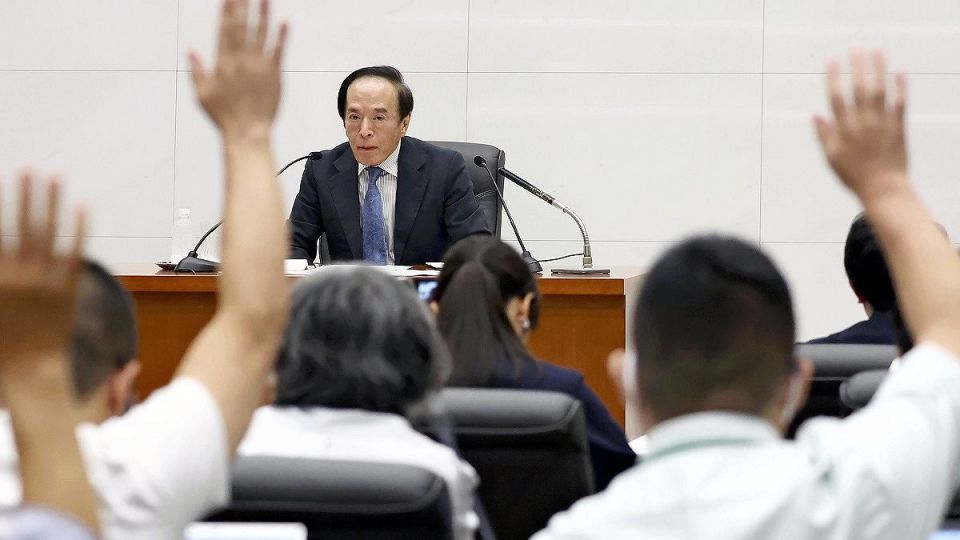August 2, 2024
TOKYO – After years of ultralow interest rates, Japan appears to be returning to “a world with interest rates.”
The Bank of Japan decided at a monetary policy meeting Wednesday to raise its short-term interest rate target to about 0.25%, the second such increase this year. At a press conference after the meeting, Bank of Japan Gov. Kazuo Ueda indicated the interest rate could be flexibly hiked in line with economic activity and commodity prices. This marked a noticeable shift from the previous cautious approach that favored taking plenty of time to implement any policy change.
At the press conference, Ueda asserted that the bank planned to increase rates if economic activity and price outlooks changed in line with the bank’s projections or it decided there was a risk that future prices could rise more than forecast.
“There is the view that gradually adjusting interest rates will, overall, be beneficial,” Ueda said.
When the central bank decided in March to end its policy of negative interest rates, it took the step after closely watching the results of this year’s shunto spring wage negotiations and the high wage increases being offered by major companies. Some market analysts see Wednesday’s decision to hike interest rates as another bold move. “This was a clear shift from the previously cautious approach,” said Ryutaro Kono of BNP Baribas Securities.
Ueda declared he “wasn’t especially paying attention” to the fact that the highest policy interest rate in the past 20 years had been 0.5%. Some market participants hold the view that the central bank’s rates could ultimately climb above 1.0%.
The bank’s quarterly Outlook for Economic Activity and Prices released after the meeting stated that the year-on-year rate of increase in the consumer price index (including all items except fresh food) was, based on the medians of the Policy Board members’ forecasts, likely to be 2.1% for fiscal 2025 and 1.9% for fiscal 2026. These levels are close to the bank’s inflation goal of 2%, so the bank could continue considering lifting rates.
Few market participants initially thought the central bank would decide on a rate hike at Wednesday’s meeting. Even some bank officials were concerned that stubbornly rising prices were sapping consumer confidence, and that any decision to increase rates would be premature. In fact, a family income and expenditure survey conducted in May revealed that the average of monthly consumption expenditures per two-or-more person households was down 1.8% in real terms from the same month in 2023 when excluding the impact of price fluctuations.
However, a string of comments by senior government and ruling party officials on normalizing Japan’s monetary policy generated growing speculation in the markets that the central bank would increase interest rates.
On July 17, Digital Transformation Minister Taro Kono said in an interview with Bloomberg that the Bank of Japan needs to raise rates. Liberal Democratic Party Secretary General Toshimitsu Motegi also spoke about normalizing financial policy. Both comments appear to have reflected the speakers’ awareness about public discontent over rising prices, but a senior Bank of Japan official offered a more cynical explanation.
“They were probably trying to raise their profiles ahead of September’s LDP presidential election,” the official said.
Nevertheless, market players took these comments as “support” for a rate hike.
At his press conference, Ueda refused to be drawn on the remarks made by senior government and ruling party officials. “I won’t comment on those individual remarks,” Ueda said. He added, “We’ll appropriately decide the bank’s policies, irrespective of any political moves.”
Prime Minister Fumio Kishida welcomed the bank’s decision to hike rates. “While this will have an impact in terms of higher loan interest rates, it also will have the positive effect of lifting the interest paid on people’s deposits and savings,” Kishida said to reporters Wednesday evening.

